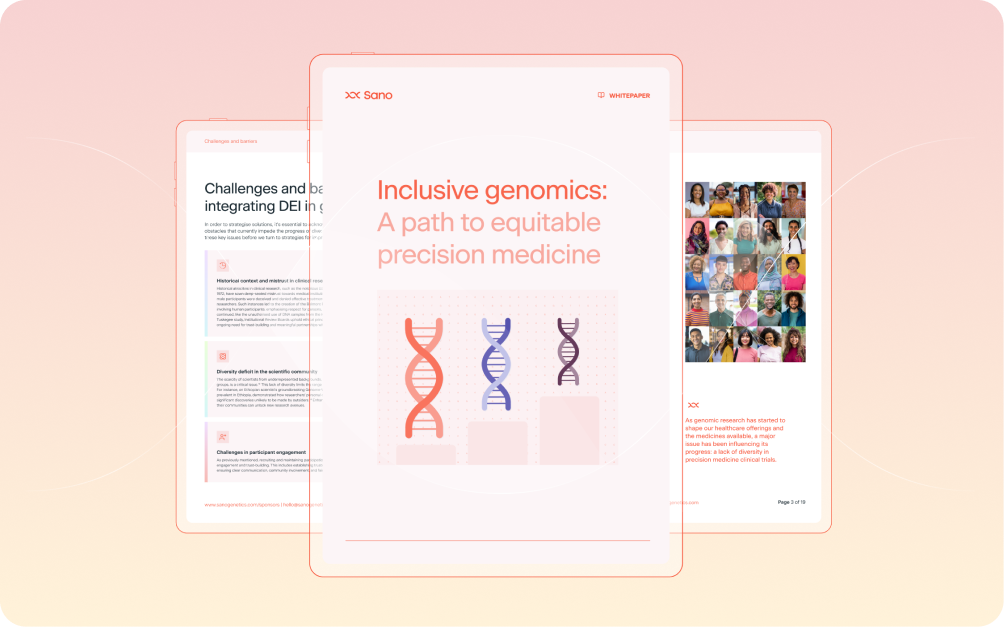Inclusive genomics: Unlocking equitable healthcare through diversity

Our new whitepaper "Inclusive genomics: A path to equitable precision medicine" offers a close look at the intersection of genomic research and diversity. It's an exploration of how embracing the full spectrum of human diversity is not just beneficial but essential for the advancement of precision medicine.
The journey of genomic research and the importance of diversity
Genomic research has come a long way, evolving from the early days of understanding heredity to the groundbreaking sequencing of the human genome. This journey has opened up new avenues in personalised medicine, where treatments are tailored to individual genetic profiles. However, there is a critical gap in this progressive narrative: the underrepresentation of diverse populations in genomic studies.
Most genetic research to date has predominantly focused on individuals of European descent, raising concerns about the applicability and effectiveness of these findings across different ethnic and racial groups. This lack of diversity not only limits the scope of research findings but also poses a significant risk of exacerbating health disparities.
Navigating challenges and looking forward
In this whitepaper, we address the challenges in integrating diversity, equity, and inclusion (DEI) in genomic research. We look at historical mistrust, biases in study designs, and the need for more inclusive recruitment strategies as key hurdles to overcome – and we provide a forward-looking perspective on how these challenges can be navigated.
We envision a future in which genomic studies reflect the diversity of the global population. This approach promises to enrich scientific understanding and ensure that advancements in healthcare are accessible and beneficial to everyone, regardless of their background. To learn more, download the whitepaper below:

